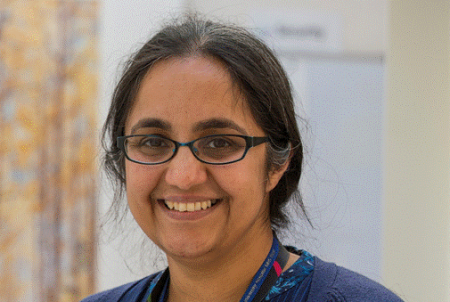
Sadia Khan, Service Director for Cardiology at Chelsea and Westminster NHS Foundation Trust highlighted how one Tweet from Hounslow Council led to a new partnership between West Middlesex University Hospital and the Council to make digital health services more inclusive for residents.
Background
During Covid-19, Chelsea and Westminster established Covid-19 virtual wards so that more patients could access treatment in the safety of their own homes. The project was incredibly successful with almost 1000 patients benefiting from the new offer.
The learning from the project evidenced that a better understanding of digital technologies could better shape health access, improve service efficiencies, and increase positive outcomes for patients.
In 2021, Sadia read on Twitter that Hounslow Council had been shortlisted for a Digital Inclusion and Inequality award, and decided to reach out directly with her idea on how health and council services could better collaborate to create a digital first model.
A new partner project formed - Digital Inclusion for Social Health and Impact.
The objectives were:
- Reduce digital exclusion
- Implement data sharing
- Create a working partnership
- Breakdown health barriers impacted by digital inequalities.
Outcomes
- Working closely with Mark Edmunds from Hounslow Council these two organisations were able to establish a new partnership with a clear governance structure. Plus, adopt new systems that would support a business-as-usual approach once the project has completed.
- Created a new data analytical group, where analysts from both organisations share data to better understand the needs of residents, and help identify and target those who will benefit most from interventions.
The above diagram highlights how ‘Data Assets’ are now mapped across the borough, illustrating where areas of poor health occur within Hounslow, these data geographical locations can then be matched to interventions being delivered in the community setting. This approach underpins the BBP Accelerator Population Health Management project objective to use data to develop evidence-based interventions.
- Chelsea and Westminster will now recycle old tech via the council’s laptop recycling project ‘Our Barn’ so that more residents can have digital access at home.
- A reduction in digital inequalities is being achieved via training and education, which are delivered by the councils Digital Champions. This has enabled more residents to better understand how best to use targeted health apps that support either diabetes, maternity, cardiology or other health services at home.
- Targeted hard-to-reach communities by commissioning ICHP to deliver tailored engagement activities. This has gained insights to barriers that had previously prevented the adoption of digital technology, particularly within the health space.
Next Steps
The project is still on-going, and aims to complete later in 2023, when a full evaluation will be published. The aim is for the project to then be adopted as business-as-usual between the two organisations.